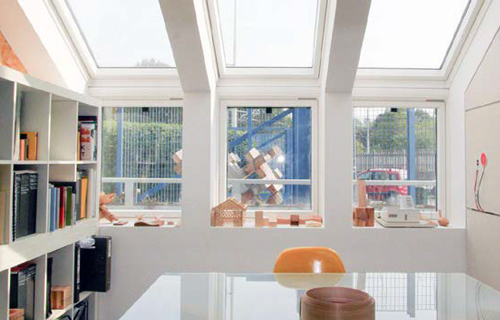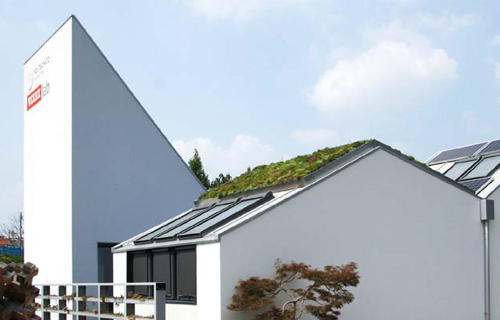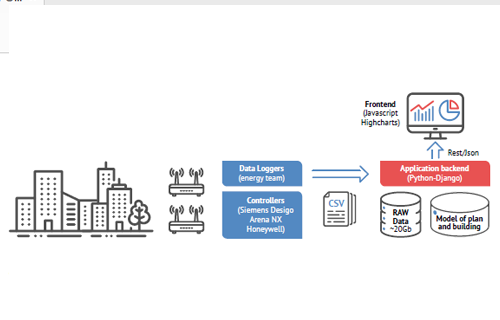Strategic Programme
Politecnico di Milano, through its Energy Project, is committed to a rational and efficient use of energy as well as to an increasing penetration of renewable and clean energy production. To this end, the Energy Commission was established in 2012 to come up with strategies in the field of energy management in compliance with the existing legislation.
Smart Buildings

Following a long-running technological adaptation, many Politecnico buildings now have continuous monitoring systems in place. Central actions include the installation of Smart Meters with online monitoring, thermal energy monitoring systems and other advanced automation systems (e.g., smoke detectors).
Engineering and Cooperation for Development
This course gives an overview on cooperation history and energy context in less developed countries, particularly in Africa. Throughout the course, energy access and related issues are addressed detailing some of the main functional solutions.
This course is delivered in the following Degree Programmes:
- Energy Engineering
- Management Engineering
- Electrical Engineering
- Environmental and Land Planning Engineering
Smart Grids and Regulation for Renewable Energy Sources
The course focuses on studying the evolution of electricity systems needed to enable a significant supply from Renewable Energy Sources (RES) and Distributed Energy Resources (DERs).
This course is delivered in the following Degree Programmes:
Energy Engineering
Energy Management Lab
This course provides concepts and instruments necessary for assessing from an economic perspective the adoption of technologies in the renewable energy, energy efficiency and digital domains, understanding the impact of emerging societal, technological, economic and regulatory-political trends on the business models of companies in the energy value chain.
This course is delivered in the following Degree Programmes:
Management Engineering
GRASSHOPPER
GRASSHOPPER (GRid ASsiSting modular HydrOgen Pem PowER plant) aims to create a next-generation MW-size fuel cell power plant which is more cost-effective and flexible in power output.
Scientific Coordinator: Stefano Campanari
EnerPOP
EnerPOP - Energia Popolare (Polisocial Award 2017) aims to demonstrate how energy saving and energy efficiency strategies, often associated with purely technical objectives and conflicting dynamics, can instead become a tool for social cohesion, if approached with a multidisciplinary approach.
Scientific Coordinator: Lorenzo Pagliano
PRE-LEAP-RE
PRE-LEAP-RE - PREparing for a Long-Term Join EU‐AU Research and Innovation Partnership on Renewable Energy promotes a pathway for empowering local research through Europe-Africa cooperation while fostering the conditions for transforming research into effective innovation, tailored to specific societal needs while acknowledging regional discrepancies.
Scientific Coordinator: Emanuela Colombo
VELUXlab Zero-Impact Laboratory
Conceived as an experimental module, VeluxLab is a building that achieves high levels of energy efficiency. The shape and orientation of the building, combined with its bioclimatic architecture and innovative building shell, allow optimal use of solar energy as well as natural lighting and ventilation to ensure comfortable interiors without any energy consumption.
Scientific Coordinator: Marco Imperadori



